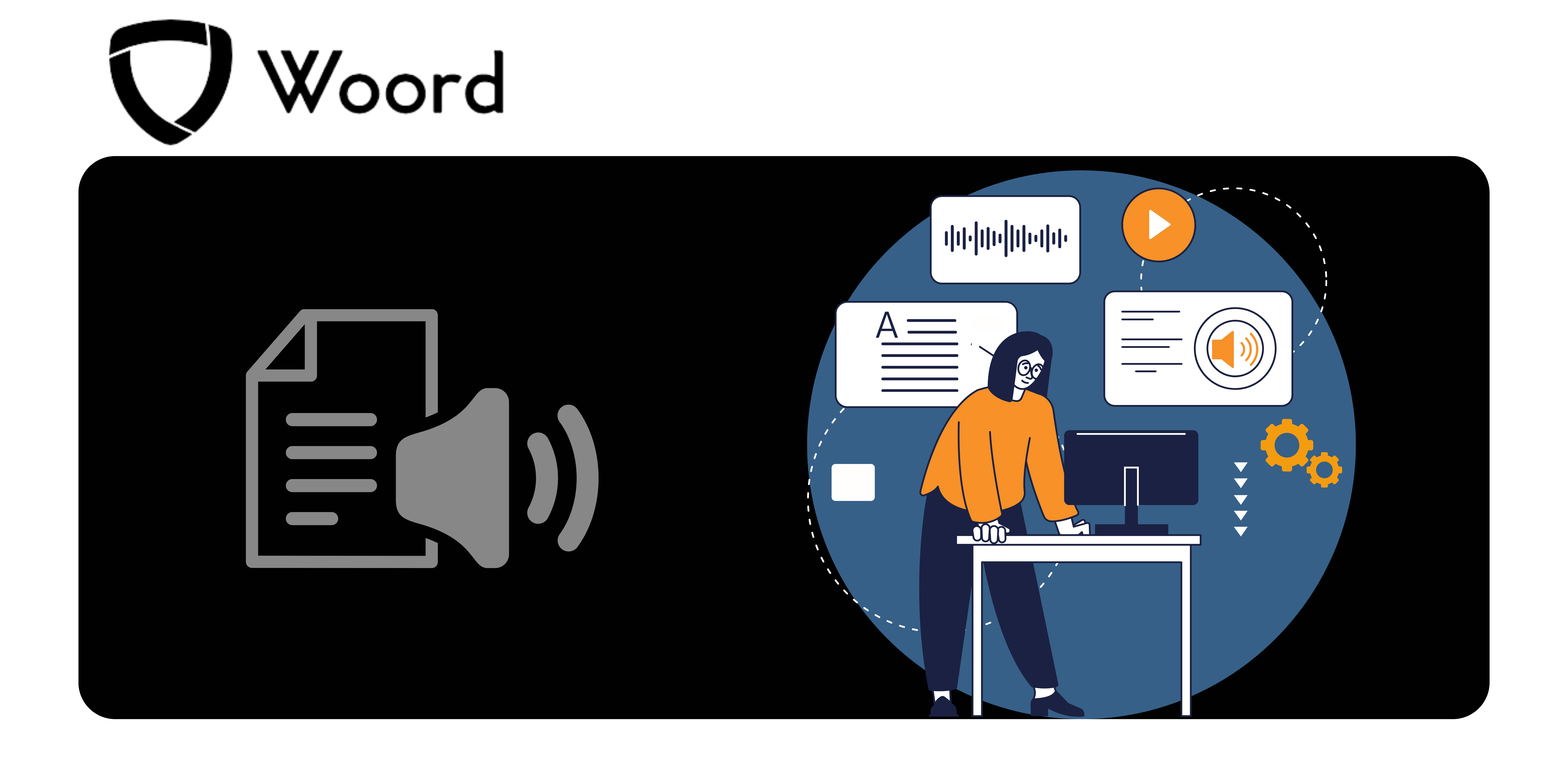Speechify Alternative: Start Using It

In today's digital age, Text-to-Speech (TTS) tools have become indispensable for a myriad of applications, from aiding those with visual impairments to enhancing content consumption on-the-go. While Speechify has long been a popular choice, users often seek alternatives that offer better features and flexibility. One such superior alternative is Woord, an all-in-one TTS tool that stands out for its comprehensive capabilities. This article delves into the world of TTS technology, explores Speechify's strengths and weaknesses, and highlights why Woord is rapidly emerging as the go-to solution for developers, content creators, and businesses alike.
Understanding TTS Technology
Text-to-Speech (TTS) technology has revolutionized the way we consume written content. By converting text into spoken words, TTS tools enhance accessibility for individuals with visual impairments and learning disabilities. But that's just the beginning. These tools have found their way into numerous applications, including e-learning platforms, customer service automation, and content creation. The essence of TTS lies in its ability to provide an auditory experience from any textual input, bridging the gap between written and spoken language in our digital world.
The Importance of TTS in Modern Applications
The adoption of TTS technology in modern applications cannot be overstated. In educational settings, TTS helps students with dyslexia and other reading difficulties by providing an auditory method to grasp complex texts. For businesses, integrating TTS into customer service systems can significantly enhance user experience by offering immediate, clear responses. Additionally, content creators leverage TTS to reach a broader audience, including those who prefer listening over reading. The versatility of TTS tools makes them indispensable in today's tech-driven environment, where accessibility and efficiency are paramount.
An Overview of Pros And Cons: What is Speechify?
Speechify is one of the most well-known TTS tools available today. Designed to convert text into natural-sounding speech, Speechify has gained popularity among users seeking a reliable and efficient TTS solution. It supports a variety of languages and offers multiple voice options, making it a versatile choice for both personal and professional use.
Despite its many advantages, Speechify has its drawbacks. Some users have reported inconsistencies in voice quality, particularly with less common languages and dialects. The pricing model can also be a concern, as the cost of premium features may be prohibitive for some users. Furthermore, the lack of customization options for voices and reading speeds can be a limitation for those seeking a more tailored TTS experience.
Why Is It So Important For Developers To Know Alternatives To Speechify?
While Speechify offers a robust TTS solution, developers often seek alternatives due to the need for more advanced features, better pricing, and improved customization options. Limitations in voice quality and language support can be a significant hindrance, especially for projects requiring a high degree of accuracy and naturalness. Moreover, developers working on large-scale projects may find Speechify's pricing model less cost-effective compared to other solutions that offer more flexible and scalable options.
Exploring Woord: A Superior TTS Solution
Enter Woord, a comprehensive TTS tool that has been gaining traction as a superior alternative to Speechify. Woord is designed to provide high-quality text-to-speech conversion with a focus on versatility and user satisfaction. Whether you're a developer, content creator, or business professional, Woord offers a suite of features that cater to diverse needs.
Woord stands out with its impressive array of features. It supports a vast number of languages and dialects, ensuring global accessibility. The tool offers a wide range of voice options, from standard voices to more expressive and natural-sounding ones. Woord also includes advanced customization settings, allowing users to adjust pitch, speed, and volume to create a more personalized listening experience. Additionally, Woord’s platform is user-friendly, making it easy to integrate into various applications and workflows.
One of Woord's most notable strengths is its extensive library of languages and voices. Users can choose from a plethora of languages, including commonly spoken ones like English, Spanish, and Mandarin, as well as less widespread languages and regional dialects. This diversity makes Woord an excellent choice for projects that require multilingual support. The voices available on Woord range from professional and formal to casual and conversational, providing the flexibility to match the tone of different types of content.
Trying Woord’s Features and Demo
Before committing to a plan, potential users can explore Woord’s capabilities through its demo mode. This feature allows users to test the tool’s functions and experience its quality firsthand. By providing a risk-free way to evaluate its performance, Woord ensures that users can make informed decisions about adopting the platform. The demo mode showcases the tool’s ease of use, voice quality, and customization options, highlighting why it stands out as a top choice among TTS solutions.
Conclusion: Leading the TTS Evolution
As Woord continues to lead the charge in TTS development, its impact on the industry is expected to grow. Developers can leverage Woord's features to create more engaging and accessible applications. Content creators can enhance their reach and engagement by incorporating high-quality audio into their work. Businesses can improve customer interactions and streamline operations with reliable TTS solutions. Woord’s commitment to innovation and excellence positions it as the go-to TTS tool for the future, setting a new standard for text-to-speech technology.



